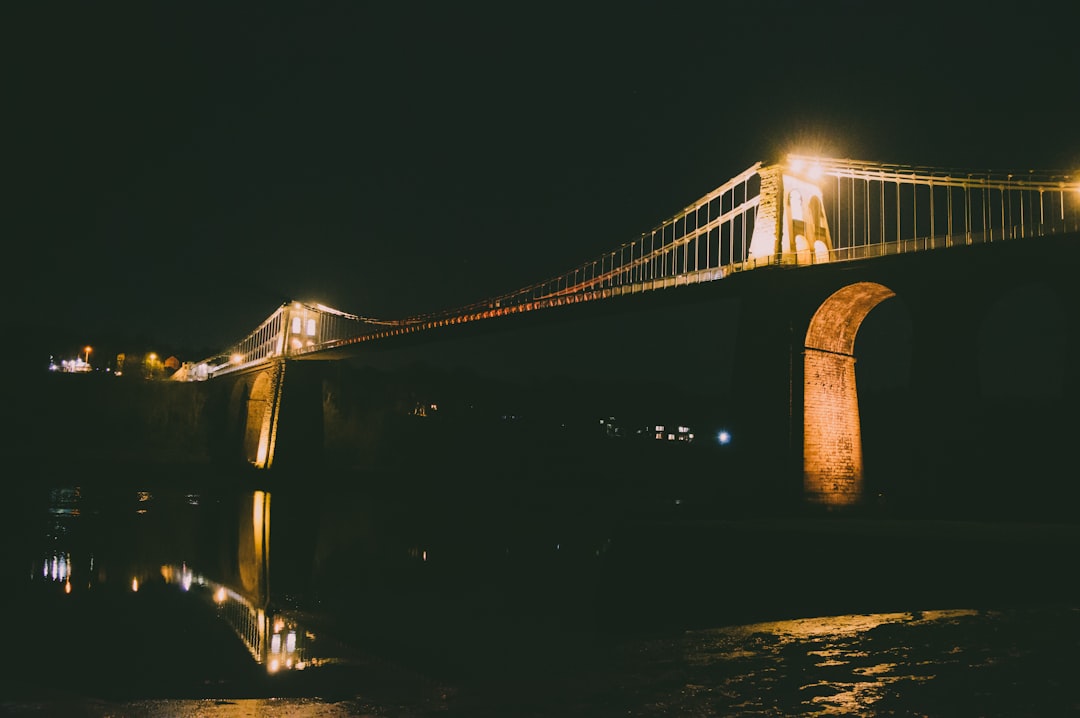The Early Years of the Ross Island Bridge
The Ross Island Bridge, an iconic landmark in Portland, Oregon, has a rich history that dates back to the early 20th century. Construction on the bridge began in 1926 and was completed in 1926, connecting the city's east and west sides over the Willamette River. Designed by Gustav Lindenthal, a renowned engineer at the time, the Ross Island Bridge quickly became a vital transportation link for the city.
Design and Engineering Marvel
The Ross Island Bridge spans approximately 3,700 feet, with its longest span reaching 1,207 feet. The bridge's unique architecture and engineering design are a testament to Lindenthal's vision and expertise. It features a cantilever through truss design, which was a revolutionary concept during that era. The cantilever truss design allows the bridge to withstand heavy loads and strong river currents, providing a reliable transportation route for commuters and vehicles.
One of the notable features of the Ross Island Bridge is its distinctive color. The bridge's green shade, known as "bridge green," became its trademark. The color was specifically chosen to blend harmoniously with Portland's lush surroundings and natural landscapes.
An Important Transportation Link
Throughout its history, the Ross Island Bridge has played a pivotal role in enhancing Portland's transportation network. It serves as a crucial link between the city's east and west sides, facilitating the movement of people, goods, and services. The bridge has contributed significantly to the growth and development of nearby neighborhoods, enabling residents to commute more efficiently between downtown Portland and the eastern suburbs.
Today, the Ross Island Bridge carries an average of 50,000 vehicles per day, including cars, buses, and trucks. Its strategic location and sturdy construction make it a vital lifeline for the region, ensuring seamless connectivity and easy accessibility.
Renovations and Upgrades
Over the years, the Ross Island Bridge has undergone several renovations and upgrades to maintain its structural integrity and accommodate the growing demands of modern transportation. In 1958, a seismic retrofit was initiated to strengthen the bridge against potential earthquakes, ensuring the safety of commuters.
Additionally, the Ross Island Bridge received a major facelift in 1986 when new lighting fixtures were installed, illuminating the structure in the evening and enhancing its visual appeal. The bridge's lighting has since become a part of Portland's iconic skyline, adding to the city's charm and ambiance.
A Cultural Landmark
The Ross Island Bridge has become more than just a transportation link; it has evolved into a cultural landmark that holds a special place in the hearts of Portland residents. The bridge's presence in numerous movies, television shows, and photography exhibits has solidified its position as an integral part of the city's identity.
From offering breathtaking scenic views of the Willamette River to serving as a backdrop for various cultural events and festivals, the Ross Island Bridge continues to captivate locals and visitors alike. Its timeless charm and historical significance make it a must-visit attraction for those exploring Portland's vibrant and diverse landscape.
The Ross Island Bridge will undoubtedly remain an enduring symbol of Portland's architectural prowess and its commitment to connectivity. As the city continues to evolve, the bridge will stand as a testament to the ingenuity and vision of its creators and an artful manifestation of Portland's unique spirit.





